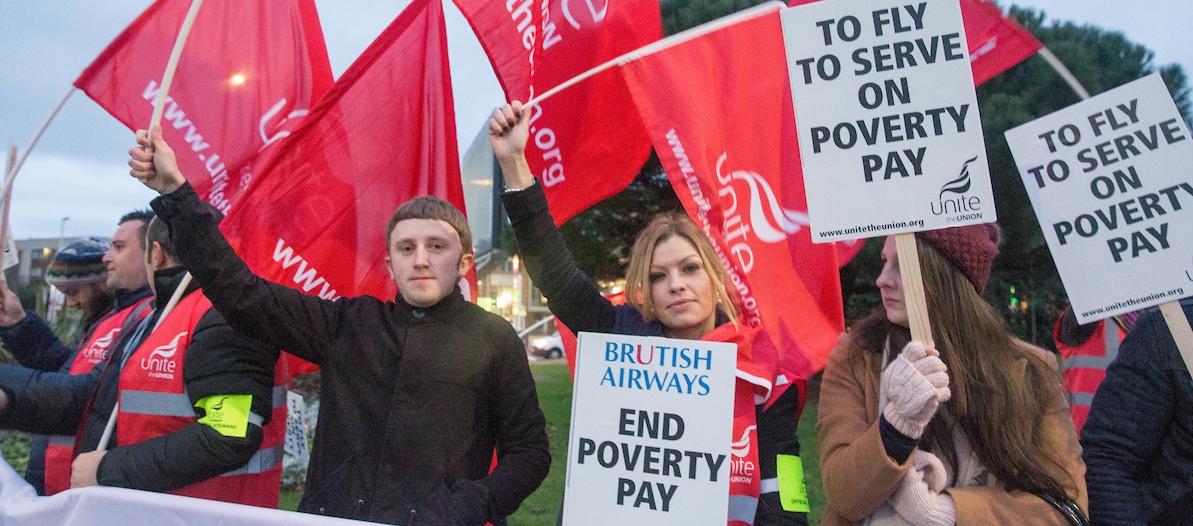Raking it in
Fat cat bosses at Britain’s biggest companies enjoyed a 10 percent pay rise last year, raking in an average of £5.5m – 129 times more than the typical salaries of their employees.
According to the High Pay Centre’s (HPC) annual survey of earnings on FTSE 100 companies, released this week, a small all-male clique are pushing their own massive pay packets up while wages for everyone else fall behind.
In 2015 wages for the average worker increased by just 2 percent, figures from the Office of National Statistics show. The small rise came after wages plummeted after the 2008 financial crisis.
Over the same period FTSE 100 fat cats have gorged on huge pay rises. In 2010 the average pay for top bosses was ÂŁ4.1m, increasing to just under ÂŁ5m in 2014. Last year that number soared to ÂŁ5.48m.
“There is apparently no end yet in sight to the rise and rise of FTSE 100 CEO pay packages. In spite of the occasional flurry from more active shareholders, boards continue to award ever larger amounts of pay to their most senior executives,” said HPC director, Stefan Stern.
Stern said he welcomed government proposals to publish ratios that compare the wage of a business’ CEO and its average worker and give ordinary employees a say over executive pay.
“Businesses could save themselves a lot of grief, and do something to restore their reputations, if they listened to workers first before awarding these bumper pay packages,” Stern said.
“The question the outside world keeps asking is â€How much?’. How much better to try and answer that question internally first with concerned yet supportive employees?”
The highest paid CEO was WPP’s Sir Martin Sorrell, who saw his pay increase from £43m in 2014 to £70.4m in 2015. Tony Pidgley was the second most highly paid CEO, earning £23m.
Other fat cats who made the top ten included BP’s Bob Dudley at £13m and Horta Osorio at Lloyds Group, which is partly owned by the tax payer, who earned £8.8m.
‘Obscene’ pay disparities
In fact ordinary workers in the finance and banking sector suffer pay disparities that are as imbalanced as other FTSE 100 industries, said Unite national officer for finance Rob McGregor.
“The differences in pay between normal workers and top executives in the finance industry are just as obscene,” he said.
The HPC report also highlighted the glaring gender disparities found at the top of industry.
“Big pay is a boy’s club,” the HPC said. “No women made it into the top ten in either of the last two years. Ten percent of FTSE 100 companies had no female executive directors and no female remuneration committee members.”
Unite assistant general secretary Steve Turner compared sky rocketing executive pay with the fall in living standards and job security experienced by ordinary workers and pointed to failed Conservative economic policies.
“These latest figures from the HPC are the latest example of how we are not â€all in it together’ – austerity as an economic policy has delivered falling living standards for most people with the average wage still worth ÂŁ2,000 less in real terms than before the crash,” Turner said.
“We have seen this government attack trade unions and weaken employment rights, the result has been an increase in zero and short hour contracts, insecure and precarious working.”
 Like
Like Follow
Follow


